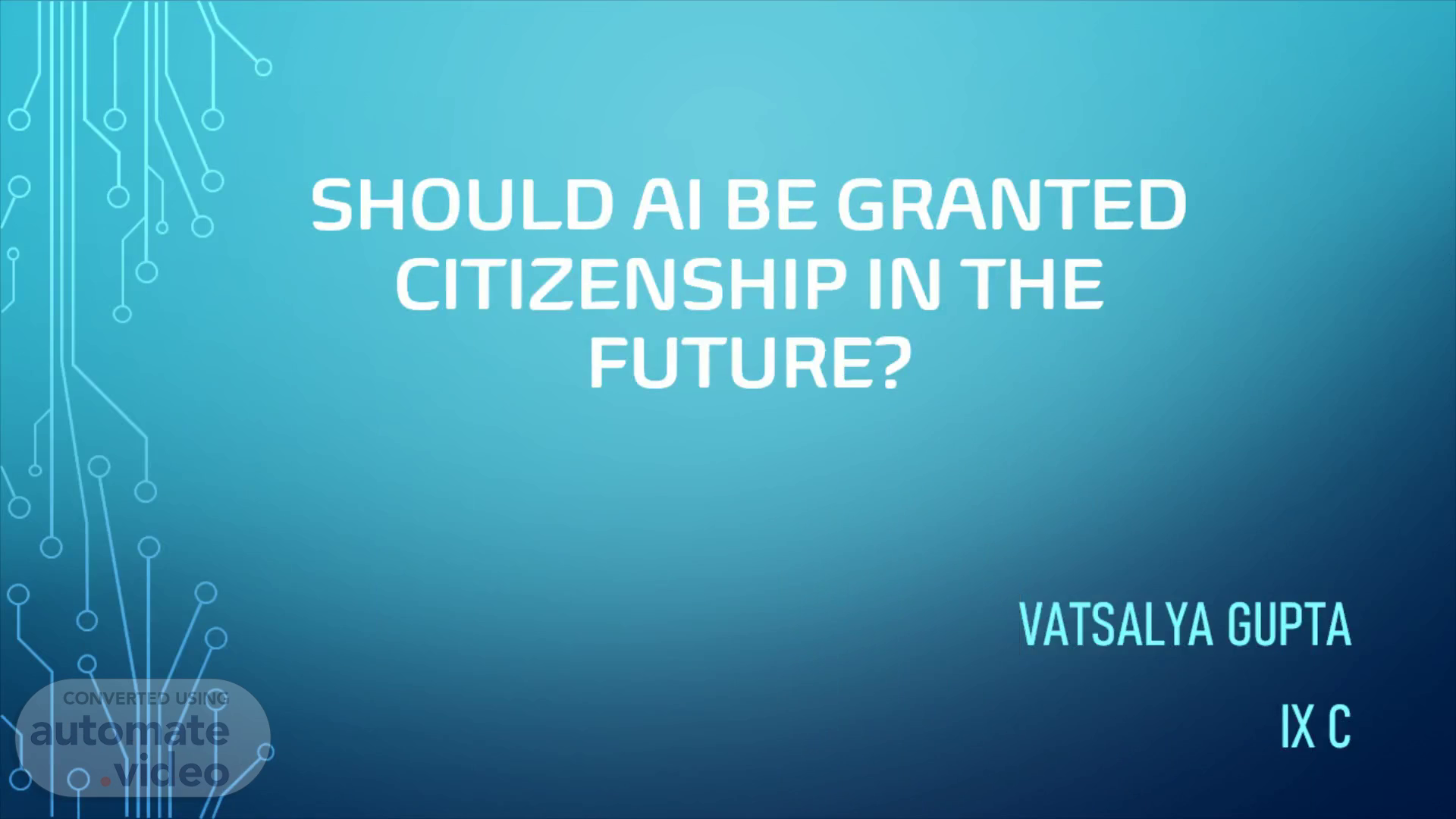
Should AI be granted citizenship in the future?
Scene 1 (0s)
Should AI be granted citizenship in the future?. Vatsalya Gupta Ix c.
Scene 2 (9s)
But what if I told you, one humanoid has already been given citizenship in the Kingdom Of Saudi Arabia? Meet Sophia..
Scene 3 (21s)
Sophia. Sophia was given citizenship in Saudi Arabia and was made by Hong Kong company called Hanson Robotics. Although the creators claim that it’s basically alive, Hanson Robotics call Sophia a “social robot”. It entertains people while at the same time tricking into thinking them its alive. Giving citizenship rights to Sophia is clearly a publicity stunt by Saudi Arabia, as there was no need for such position..
Scene 4 (43s)
Robots’ rights. Some think that will have to start thinking about robot rights in the future because they will become smart enough to demand them. Others think that talking about robots that is a long way of and talking about rights now isn't really necessary..
Scene 5 (59s)
Legal status. The constitution says that every citizen has the right to take part in conduct of public affairs, vote, be elected and have access to public service in the country. Whereas governments like Estonia are taking a serious look at new legal statuses for robots, making them legally between a human and an object..
Scene 6 (1m 18s)
In my opinion, Robots should not be given any kinds of rights because there are several differences between humans and robots. Here are a few reasons:.
Scene 7 (1m 31s)
#1. Humans and other living sentient beings deserve rights, robots don’t, unless we can make them truly indistinguishable from us. Not only how they look, but also how they grow up in the world as social beings immersed in culture, perceive the world, feel, react, remember, learn and think. There is no indication in science that we will achieve such a state anytime soon..
Scene 8 (1m 53s)
There is an important difference between humans and robots. A human being is a unique and irreplaceable individual with a finite lifespan. Robots are computational systems, and can be backed up, stored, retrieved, or duplicated, even into new hardware. A robot is neither unique nor irreplaceable. Even if robots reach a level of cognitive capability (including self-awareness and consciousness) equal to humans, or even if technology advances to the point that humans can be backed up, restored, or duplicated, it is not at all clear what this means for the “rights” of such “persons”..
Scene 9 (2m 21s)
#3. I refuse to recognize that a machine as a right to “life” including power and tech support when there are several billion humans without reliable power, much less water and sanitation. You’re seeking to give machines human rights when there are many humans who lack those rights..
Scene 10 (2m 38s)
If it has a right to “life”, do we lose the ability to turn off a malfunctioning AI that is killing people? Or the ability to power down a military system designed to kill people?.